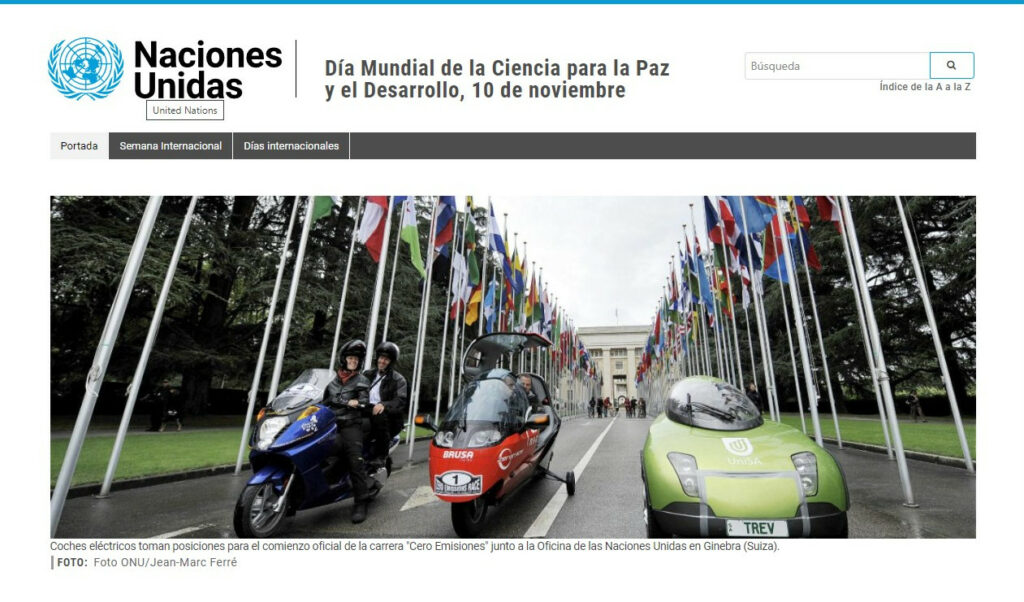Esta entrada también está disponible en: Aragonés Català Español Français English
LETTEROUSES VS. FLAT EARTHERS
I’m not into science and I don’t understand maths. It’s not my thing. I’m into writing, my thing is language, languages. My best friend laughs at me and calls me letterous, because the word is similar to leprous, it must be something like I’m missing a piece of my brain that has fallen out.
Well, okay, whatever, but what’s the point of equations and particles and shit like that? Does it pay at the supermarket? Am I going to get a better job for understanding that? No way, because I want to be an instagrammer and for that I don’t need maths or scientific stuff.
The only thing I can think of that science could be cool for is to refute the flat earthers. That’s funny, have you seen that tweet that’s going around? Yeah, yeah, the one that says:
“Finally, a Chilean flat earther group! Soon there will we be millions around the globe.”
I’m dying laughing. But don’t you think the earth is flat? Then it’s not a globe, there can’t be people around it!
By telling you this I’m discovering that it’s kind of cool, isn’t it? There’s a point in understanding the world, knowing how it works and why things work. It makes it harder to be fooled. So when someone tells me that the earth is flat, that climate change doesn’t exist or that animals don’t feel, I can tell them that there is evidence to the contrary and I can argue it. I’m going to win every debate!
Come on, I’m going to take a look below at the World Science Day for Peace and Development, as I think I’m starting to get a bit of scientific curiosity.
Description
Each year, World Science Day for Peace and Development promotes citizens being informed about scientific advances, creating more sustainable societies, while promoting understanding of the fragility of the planet we live on. This Day provides an opportunity to mobilise all actors around this vital issue.
Science helps societies to progress. There is no doubt about it. It is the tool at the disposal of human beings to understand the world around them and to apply this knowledge for their benefit. Scientific advances allow us to find solutions to new economic, social and environmental challenges in order to build a sustainable future. Scientific research also has a role to play in building peace by fostering international cooperation to achieve sustainable development.
Further information:

The objectives and contents of this proposal can be related to the International Day of Women and Girls in Science (11 February) and World Health Day. (7 April). We also relate it to an interesting Aragonese connection: Discovery of a supernova from the Javalambre Astronomical Observatory (December 12)].
In Aragon
Here, as in many other places, the Day of Women and Girls in Science (11 February) is celebrated with special intensity. The Government of Aragon, the University of Zaragoza, town councils… all organise a wide range of activities (exhibitions, round tables, workshops and educational sessions). It helps to advance on the road to equal opportunities and to break down prejudices.
A detail
The Day has its origins in the World Conference on Science, which was held in Budapest in 1999 under the auspices of Unesco and the International Council for Science (ICSU). It also opens the International Week of Science and Peace, which has been celebrated since 1986 (International Year of Peace).
Since its proclamation by Unesco in 2001, the World Science Day for Peace and Development has generated many concrete projects, programmes and funds for science around the world. The Day has also contributed to fostering cooperation between scientists living in regions marked by conflict, such as the creation of the Israeli-Palestinian Science Organisation (IPSO), supported by Unesco.
Some reflections
The purpose of the day is to renew national and international commitment to science for peace and development, and to emphasise the responsible use of science for the benefit of societies, in particular for the eradication of poverty.
The World Day also aims to raise public awareness of the importance of science and to bridge the gap between science and society. It is an opportunity to reaffirm each year the will to achieve the goals proclaimed in the Declaration on Science and the Use of Scientific Knowledge:
- Tp strengthen society’s awareness of the role of science for peaceful and sustainable societies.
- To promote national and international solidarity to share science among countries.
- To renew national and international commitment to the use of science for the benefit of societies.
- To present the challenges facing science and encourage support for scientific work.
Suggestions for teachers
As a general introduction, we recommend viewing a short audiovisual document: “Frontier Issues: Artificial Intelligence and development.”
Based on the premises formulated in the information provided, it may be interesting to promote some discussion (age and cycle appropriate) around issues such as: How does science help development and peace? Can science and technology also be used for contrary purposes (e.g. the arms industry)? How can this idea be reversed? (Exploring contradictions is always stimulating).
The “Aragonese” connection can also be strengthened around Aragonese scientists, such as the blog of the Asociación Ciencia Viva, can also be strengthened.
In relation to the International Day of Girls and Women in Science, the website Pioneras de la Universidad de Zaragoza can be visited as an example.
For a “lateral” look (working conditions, dehumanisation in the face of the machine…) a fragment of Modern Times (Chaplin) could serve as a footnote.
Objectives that this proposal helps to achieve
ESO:
- To assume responsibly their duties, to know and exercise their rights in respect for others, to practice tolerance, cooperation and solidarity among individuals and groups, to exercise in dialogue, strengthening human rights and equal treatment and opportunities between women and men, as common values of a pluralistic society, and to prepare for the exercise of democratic citizenship.
- To value and respect the difference between the sexes and the equality of rights and opportunities between them. Reject discrimination against people on grounds of sex or any other personal or social condition or circumstance. Reject stereotypes that discriminate between men and women, as well as any manifestation of violence against women.
- To conceive scientific knowledge as an integrated knowledge, which is structured in different disciplines, as well as to know and apply the methods to identify problems in the different fields of knowledge and experience.
Baccalaureate:
- To consolidate a personal and social maturity that allows them to act responsibly and autonomously and to develop their critical spirit. To foresee and resolve personal, family and social conflicts peacefully.
- To promote effective equality of rights and opportunities between men and women, to analyse and critically assess existing inequalities and discrimination, and in particular violence against women, and to promote real equality and non-discrimination of people for any personal or social condition or circumstance, with special attention to people with disabilities.
- To understand the fundamental elements and procedures of research and scientific methods. Knowing and critically assessing the contribution of science and technology in changing living conditions, as well as strengthening sensitivity and respect for the environment.
Subjects with which it can be linked
- Ethical values / core subjects e.g. Biology-Geology or Mathematics (ESO, 1st cycle)
- Ethical values / Education for citizenship and human rights / core e.g. Mathematics or Physics-Chemistry (ESO, 2nd cycle)
- Baccalaureate: To be assigned according to modality
Development of competences
- Social and civic competences
